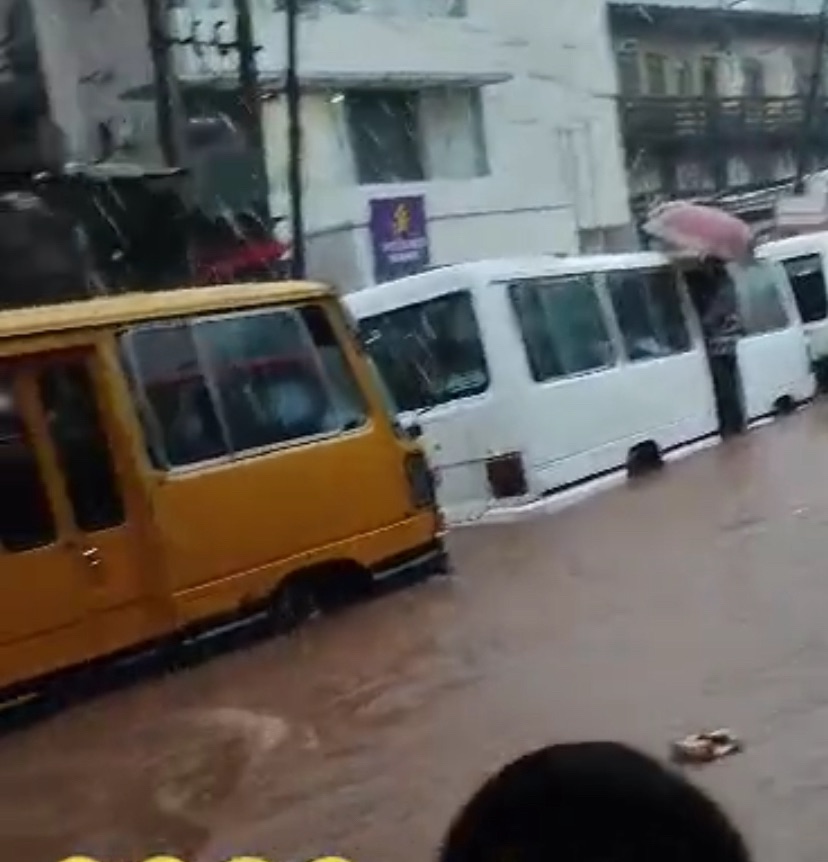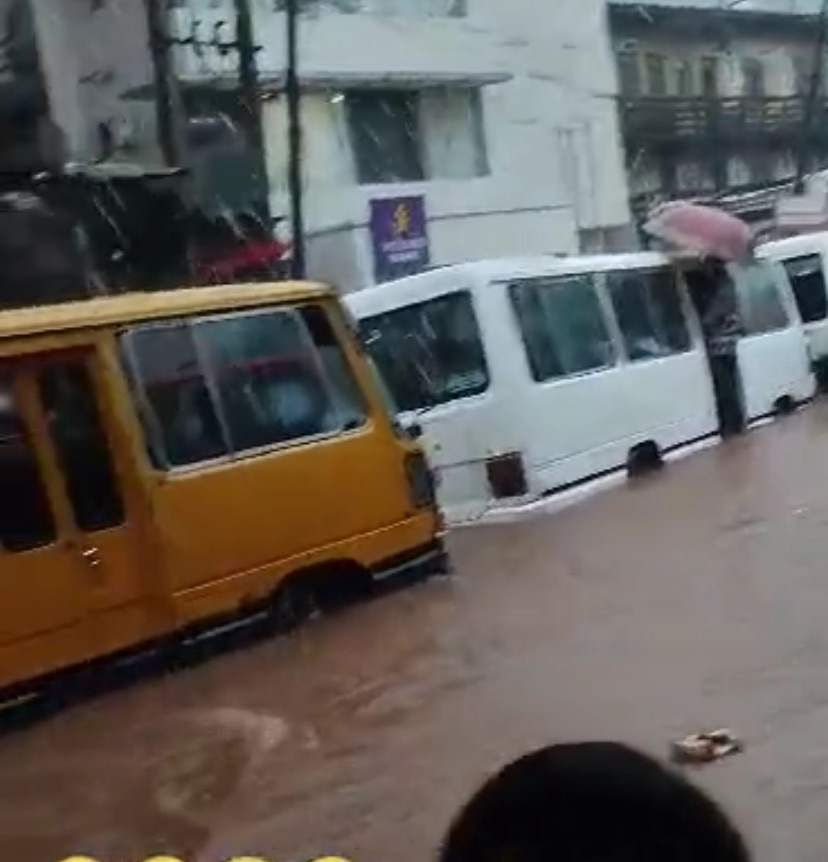By Karen James
The bustling Onitsha Main Market, a hub for traders and visitors alike, has become a scene of growing concern as poor road conditions and flooding wreak havoc on businesses and livelihoods. Williams, Notiage, Johnson, and Emeka Ofor roads, key arteries within the market, have deteriorated into hazardous paths that endanger both locals and the thousands of visitors who frequent the area daily. A concerned citizen recently reached out to the Pechilly Investigative Media Team, urging immediate intervention from the Anambra State Government to prevent further damage to lives, vehicles, and businesses.
The floodwaters, exacerbated by poor drainage systems, have made these roads nearly impassable. According to residents and traders, heavy rainfall turns the streets into pools of murky water, making it difficult for vehicles to pass through without suffering damage. Over time, this has led to a sharp increase in vehicle breakdowns and accidents, further slowing business activity in the market, which serves as one of West Africa’s largest commercial centers.
The concerned citizen, who spoke passionately about the issue, said: “The state of these roads is a disaster waiting to happen every day. Mr. Governor, Professor Charles Chukwuma Soludo, must remember the promises he made to turn Onitsha Main Market into a world-class business hub. How can that happen when we can’t even access the market without risking our lives or damaging our vehicles?”
According to him, over 5,000 vehicles use these roads daily, ferrying traders, goods, and customers to and from the market. The poor condition of the roads, coupled with the flooding, has resulted in frequent accidents, and, tragically, lives have already been lost. “It is heartbreaking to see people who come to the market to make an honest living lose everything because their vehicles are submerged in floodwaters, or worse, they become victims of preventable accidents,” he lamented.
A visit to the affected areas revealed deep potholes, cracked asphalt, and stagnant pools of water that have become breeding grounds for mosquitoes. Traders have resorted to building makeshift wooden walkways to allow customers to cross the flooded roads, but these efforts provide only a temporary solution. Many of the shop owners, especially those in the lower sections of the market, have been forced to close their shops when the rains come, fearing that the rising waters will ruin their goods.
One trader, name withheld, who deals in electronics, shared his frustration: “We are losing customers every day because no one wants to come to a market where they can’t walk without stepping into dirty water. The roads are in such terrible condition that delivery trucks are finding it harder and harder to reach us, and some of us have lost business because of it.”

Efforts to reach the local government for comment have been largely unsuccessful. However, community leaders and market associations have repeatedly appealed to the state government to address the dire condition of the roads and drainage systems. They argue that Onitsha, being a major revenue-generating city for the state, deserves better infrastructure that reflects its commercial importance.
“The governor should understand that this is not just about fixing a road; this is about saving lives and protecting the livelihoods of Ndi Anambra,” said the concerned citizen. “If these roads are fixed, the market will thrive, and more investors will be attracted to do business here. But if this issue is ignored, we are bound to lose even more.”
As the rainy season continues, the threat posed by the flooding and bad roads grows ever more urgent. Residents and traders in Onitsha Main Market are calling on Governor Soludo to take immediate action, reminding him of his commitment to making Anambra a safe and prosperous place for businesses. The people believe that, with proper government intervention, the market can be restored to its former glory and serve as a true international commercial hub.
For now, the traders and visitors of Onitsha Main Market can only hope that their pleas do not fall on deaf ears. The time for action is now, as every day that passes without repairs to the roads brings more damage, more accidents, and more lost opportunities for the thousands who depend on the market for their livelihood.

